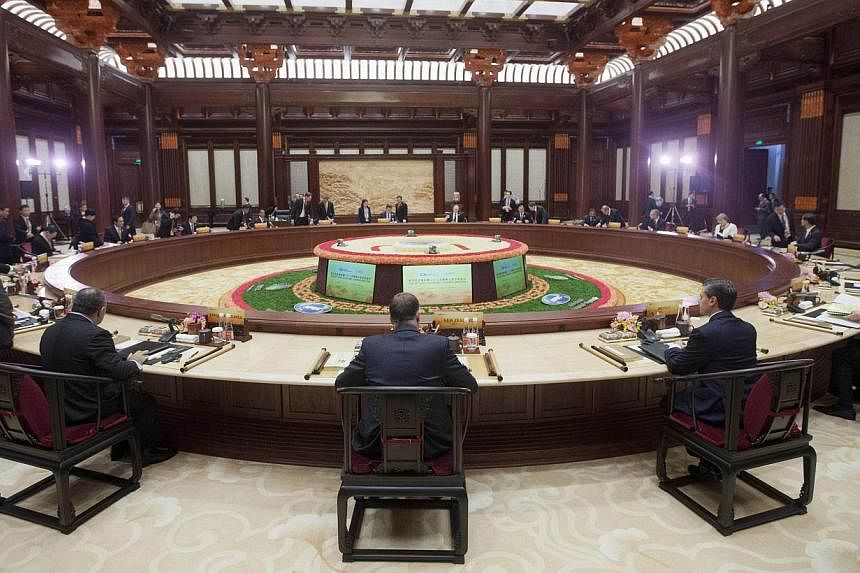This year's annual meeting among the leaders of the 21 member economies of the Asia-Pacific Economic Cooperation (Apec) bloc saw a number of breakthroughs, in politics as well as economic collaboration. Some of them took place on the sidelines of the summit. The main ones are:
- Chinese President Xi Jinping and Japanese Prime Minister Shinzo Abe held their first formal meeting since taking power in 2012, despite bilateral tensions.
- Strategic study to be conducted on the Beijing-backed Free Trade Area of the Asia-Pacific (FTAAP) - a regional free trade area. The study is expected to be completed by the end of 2016.
- China will contribute US$40 billion (S$50 billion) to set up a "Silk Road" fund to boost connectivity across Asia.
- A cross-border law enforcement network will be set up to strengthen cooperation to fight corruption among countries in the region.
- Endorsement of a blueprint to strengthen transport infrastructure, institutional and people-to-people links among the grouping.
- Expansion of the Information Technology Agreement between US and China which could eliminate tariffs on US$1 trillion (S$1.25 trillion) in global sales of IT products.
- Extension of visa validity between China and the US. From Wednesday, student visas will be valid for five years, and business and tourist visas will be valid for 10 years, up from one year for each category.

